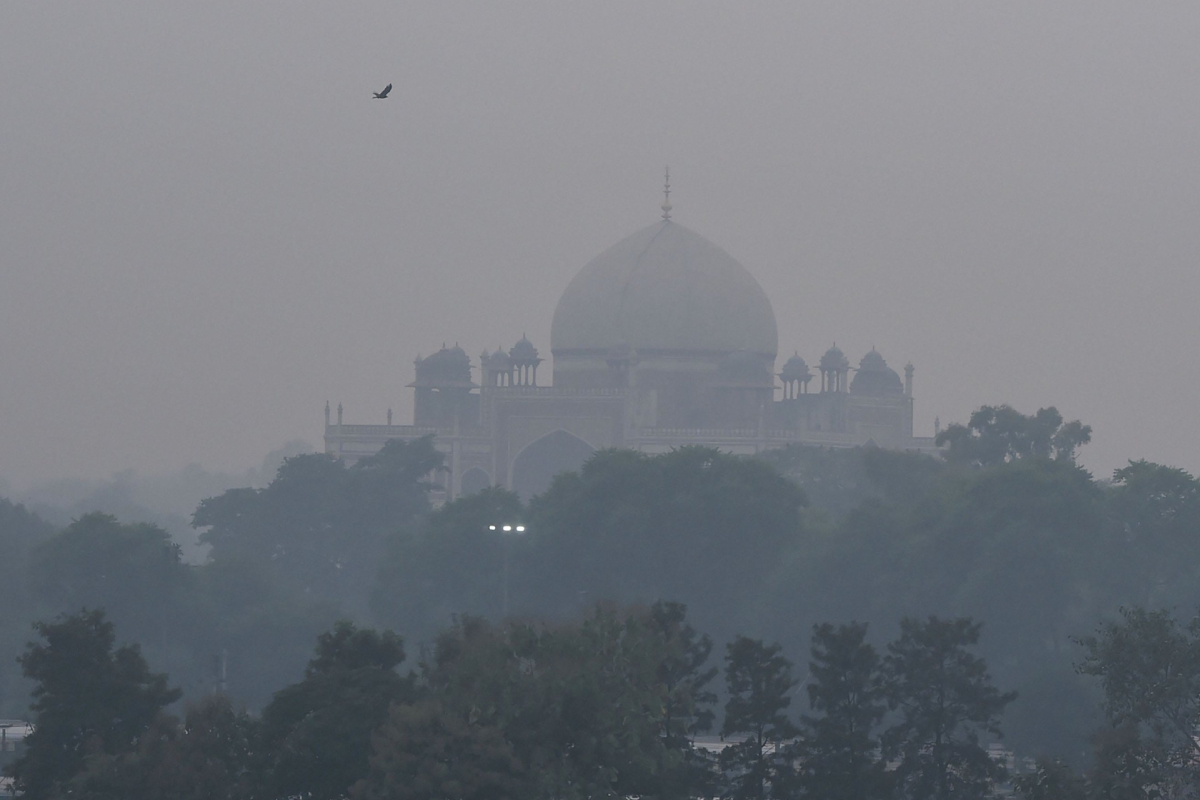NEW DELHI: Delhi’s air quality deteriorated significantly on Thursday, breaching the 400 mark and dipping into the ‘Severe+’ category. This drastic decline forced the Commission for Air Quality Management (CAQM), the Centre’s anti-pollution panel, to impose GRAP 4 restrictions in the national capital and its surrounding areas starting tonight.
Earlier in the day, the CAQM had already enforced GRAP 3 measures when the air quality index hovered over 300. The panel stated that stage III measures of the Graded Response Action Plan (GRAP) were implemented due to “highly unfavourable meteorological conditions which include calm winds and very low mixing height.” By 10 PM the 24-hour average air quality index had breached the 400 mark which was 379 at 4 PM, prompting the emergency imposition of GRAP 4 restrictions.
ALSO READ: Boat rides to resume at Purana Qila Lake in Delhi this winter
In the evening, the panel announced, “Considering the steep rise in the AQI of Delhi owing to highly unfavorable meteorological conditions and absolute calm wind conditions, the CAQM Sub-Committee on GRAP called for an emergency meeting.” The Sub-Committee decided to impose Stage-IV (‘Severe+’ Air Quality) of the GRAP schedule in the entire NCR, effective immediately.
As a result of the severe air pollution, schools in Noida will start at 9 AM tomorrow and operate in a hybrid mode due to the severe cold and air pollution.
What’s Allowed and What’s Not:
Entry Restrictions: Stop the entry of truck traffic into Delhi. Ban on construction and demolition activities for linear public projects such as highways, roads, flyovers, over bridges, power transmission, pipelines, and telecommunications.
Schools: The government can discontinue physical classes, including Classes VI-IX and Class XI.
Offices: The government may allow public, municipal, and private offices to work at 50% capacity, with the rest working from home.
Additional Measures: State governments may consider further emergency measures like closing colleges/educational institutions, halting non-emergency commercial activities, and implementing odd-even vehicle regulations.
Health Precautions: Children, the elderly, and those with respiratory, cardiovascular, cerebrovascular, or other chronic diseases are advised to avoid outdoor activities and stay indoors.
Ban on Construction: A ban on all construction and demolition activities, including public projects such as highways and flyovers.
Last month, Delhi’s air quality remained in the ‘severe’ and ‘very poor’ categories, prompting annual health warnings from medical professionals and leading to a rush of cases before the Supreme Court. The court has held several hearings on the air quality crisis while addressing issues from farm fires to ineffective bans on polluting vehicles.
ALSO READ: Legal battle over Garbhanga Sanctuary: High Court issues notice over de-notification
In some instances, the court criticized the authorities for not following the law, such as allowing non-essential construction activities during GRAP-IV. The court also questioned the Delhi government and the CAQM for not ordering stricter anti-pollution measures once the AQI crossed the 300-mark.
As Delhi grapples with this severe air quality crisis, stringent measures and vigilant enforcement are crucial to mitigate the adverse effects on public health and the environment.

